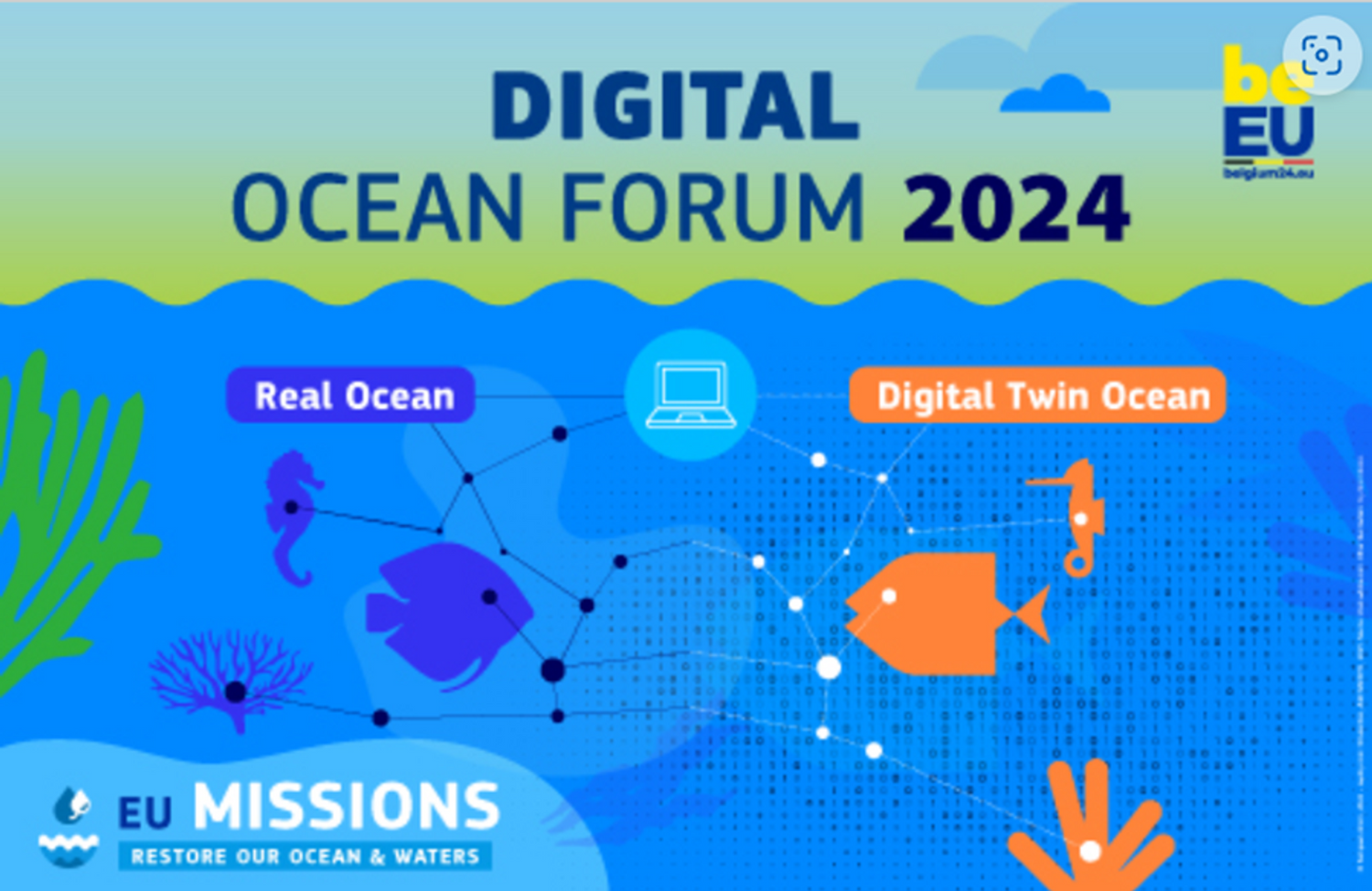Interview with Patrizio Mariani by Silvia Chemello, Nertila Gojani, Caecilia Managò
Patrizio Mariani, MISSION ATLANTIC’s Coordinator participated at the Digital Ocean Forum (DOF) 2024, which took place on June 13th 2024, from 10:00 to 16:30 CET at the Palace of the Academies in Brussels.
We had the chance to interview Patrizio to recap on key insights from the DOF:
Question 1: What are your key learnings/take-aways from the DOF24?
The Digital Ocean Forum provided an occasion to showcase initial examples of applications on this new computing infrastructure and to discuss a short-term roadmap for its development. There is an opportunity to develop the Digital Twin of the Ocean (or rather, several Twins) to effectively link the huge amount of data provided across different platforms (such as COPERNICUS, EMODNET, as well as several EU projects and national initiatives) and modern applications for data visualisation and scenario testing. I see immense potential for data harmonisation and knowledge extraction from this big ocean data.
Question 2: How can MISSION ATLANTIC contribute to the DTO?
In MISSION ATLANTIC, we can contribute to the data lake under the DTO by offering the end-to-end, high-resolution global ocean data generated in our project. Additionally, we have tools to process this data, delivering indicators of ecosystem state and evaluating risks and vulnerabilities of marine ecosystems under different future scenarios and management options. Both the data and tools can contribute to the DTO infrastructure, and we can provide advice on delivering relevant information to support the management of these complex socio-ecological networks.
Question 3: What applications do you expect to emerge from the future development of the DTO?
It will be interesting to see future applications covering some of the branches of modern integrated ecosystem assessment, including better analysis of cumulative pressures on biodiversity; Real-time data acquisition and data-driven modelling of ecosystem indicators; Improved risk and vulnerability analyses driven by such big ocean data. Exciting times ahead to innovate and advance the sustainable and equitable use of marine resources!
Thank you very much for the kind and insightful interview!
